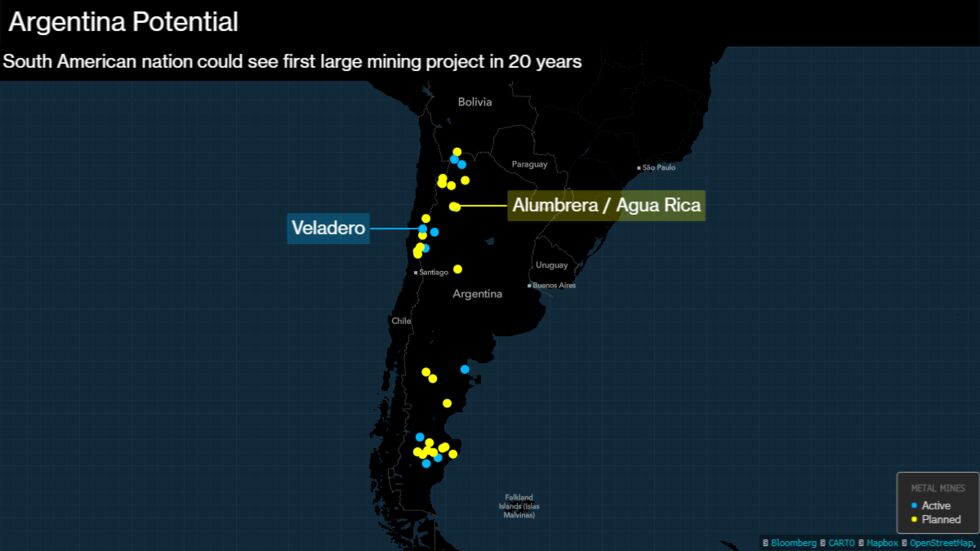Categories:
General Market Commentary
Topics:
General Market Commentary
Argentina Mining Gets Macri Boost Ahead of Tough Election
Argentina is eyeing its first major new mining project in two decades, nudged forward by President Mauricio Macri’s market-oriented policies. But there’s no guarantee he’ll be around to take credit.
Argentina’s economy is tanking with the central bank hiking interest rates to ease inflation and save the peso, the worst-performing currency in emerging markets. That could put Macri on shaky ground as he heads toward a presidential election in October where he could face his predecessor, Cristina Fernandez de Kirchner, a populist who may peel back many of the policies Macri has undertaken.
No matter who wins in October, the ground’s now tilled for a series of mining investments, said Mariano Lamothe, Argentina’s Undersecretary for Mining Development. Two weeks ago, Yamana Gold Inc., Goldcorp Inc. and Glencore Plc said they’re studying a plan to jointly develop the Agua Rica gold and copper project in the country’s northwest. A decision to invest could come within months, Lamothe said.
“We’ve built a solid base,” Lamothe said in an interview in Buenos Aires. “So when President Macri’s term ends, it won’t be subject to the sharp turns that populism has generated in the past.”
The three companies will complete a feasibility study next year. The plan is to combine Glencore’s Alumbrera mine, which began operations in 1997, with the Agua Rica project, with estimated reserves of about 4.5 million tons of copper and 6.5 million ounces of gold. The hoped-for result is an estimated life of 25 years with an annual production of 236,000 tons of copper-equivalent metal for the first 10 years.

Macri has created a safer investment climate for miners by improving ties with authorities in provinces, which own the minerals in their territory, Lamothe said, adding that there’s also been efforts to reduce costs and red tape for prospectors.
Moves to improve regulatory frameworks, push transparency and address environmental issues were “important work, and it makes Argentina’s mining sector more attractive,” said Fiona Mackie, Latin America director at the Economist Intelligence Unit. But potential shifts in currency policy or a return to capital controls have investors on edge, she said.
“The first thing investors ask you is what will happen with Argentina, and that’s an unsolved mystery,” said Gustavo Koch, executive director at Argentina’s mining chamber Caem. “We’re hoping for some kind of continuity of sensible policies.”
Argentina hasn’t seen a significant new mining project since 1997, when work started on Glencore’s Alumbrera gold and copper mine. A new large project in the South American nation would come at a moment when supply is tight and few new mines are being built. Morgan Stanley listed copper as its top pick among metals in a quarterly report and said it expects the market will post a deficit of 406,000 tons this year and of 187,000 tons next.